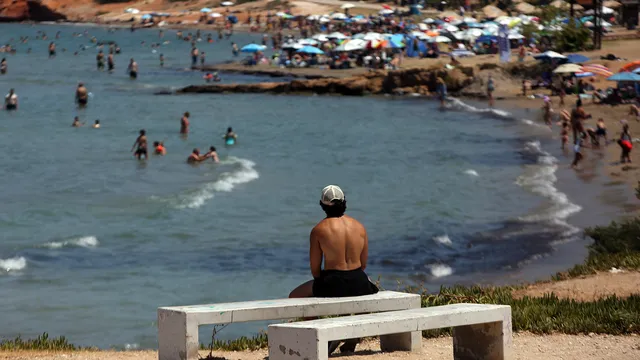Just over half of Greeks (52%) surveyed in June by the Institute for Consumer Goods Research (IELKA) said they would not go on vacation this summer.
Of those who do plan to travel, only 7% will stay in hotels, which are considered too expensive. Instead, 31% of those surveyed said they would stay in their home village with relatives or friends who have houses in the countryside or near the sea.
Danae Tsouni, a 30-year-old lawyer from central Athens, reflects this trend.
"This year, I will only travel for three or four days to stay with friends who have a family house by the sea. With the increase in ferry ticket prices this year, I have to give up my vacation and spend a few days on an island," she explained.
The survey also revealed that 38% of Greeks plan to take less than 14 days of summer vacation — shorter than in previous years.
Most vacation days are taken in August, when many shops and businesses close for the holidays.
The coastal areas of the mainland are the preferred destination for 60% of those surveyed, while only 28% can afford to visit the islands.
Cost is a major factor. Calculations by the newspaper Ta Nea show that a family of four would have to spend around €1,500 for a four-day stay on the Cycladic island of Paros, including ferry tickets, car rental, and hotel accommodation.
Danae pointed out: "When you earn only the minimum wage, which in Greece is still only €880 gross per month, visiting the Cycladic islands has become a 'luxury'.
Many Greeks find it impossible to spend their monthly income on a month-long vacation.
"People work twelve months so they can travel for a few days," said Lysandros Tsiladis, president of the Federation of Travel Agencies, in an interview with public television ERT.
He added that Greeks used to travel for nine to fifteen days, but now prefer shorter breaks.
This IELKA study confirms data from the European statistics agency Eurostat, according to which 46% of Greeks said they could not afford a week's vacation this year — almost double the European Union average of 27%.
Only Romania reports a higher percentage of residents who cannot afford a vacation.
Economic challenges such as low wages and high inflation contribute greatly to these trends.
Inflation in Greece in July was 3.7% year-on-year, compared to the eurozone average of 2%.
In addition, the recent boom in tourism—which is expected to reach 40 million visitors by 2024 in a country with only 10 million inhabitants—has led to price increases in popular destinations such as the Cyclades islands.
As a result, many Greeks are changing their vacation plans, prioritizing affordability over duration or luxury, with more people opting for shorter breaks and more economical accommodation closer to home. | BGNES

 Breaking news
Breaking news
 Europe
Europe
 Bulgaria
Bulgaria







